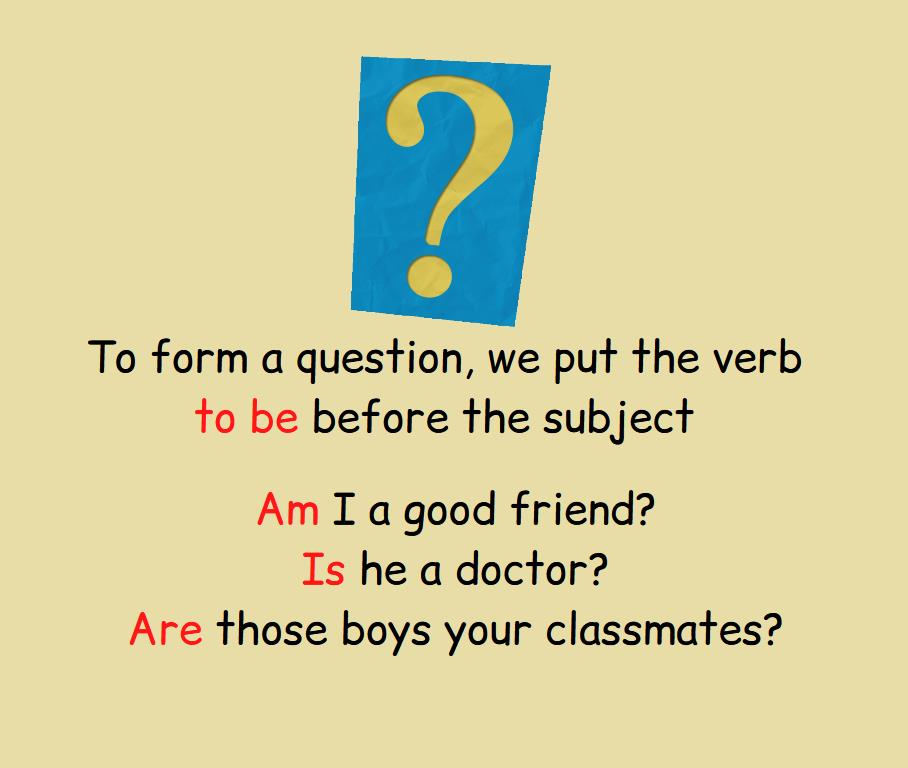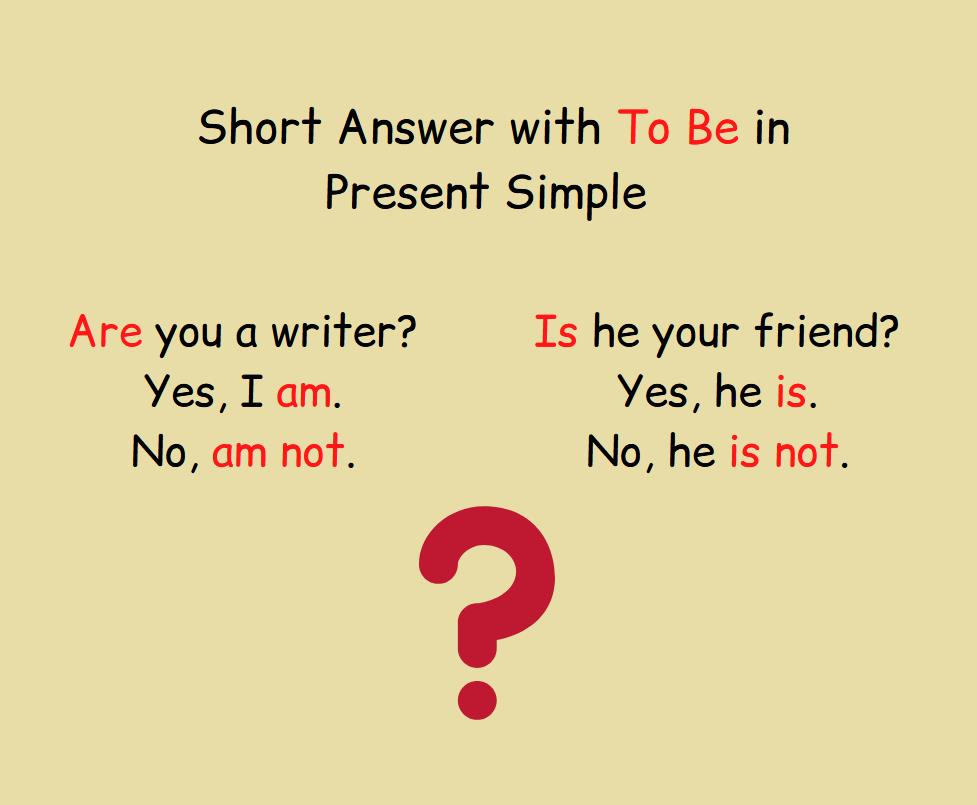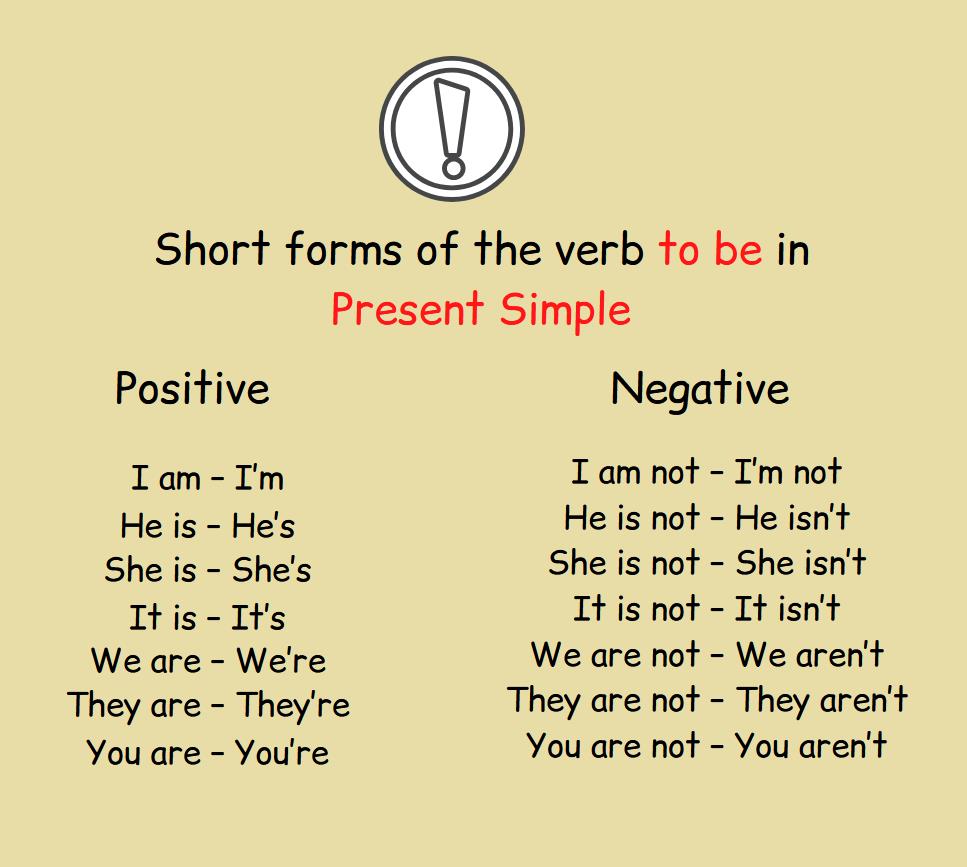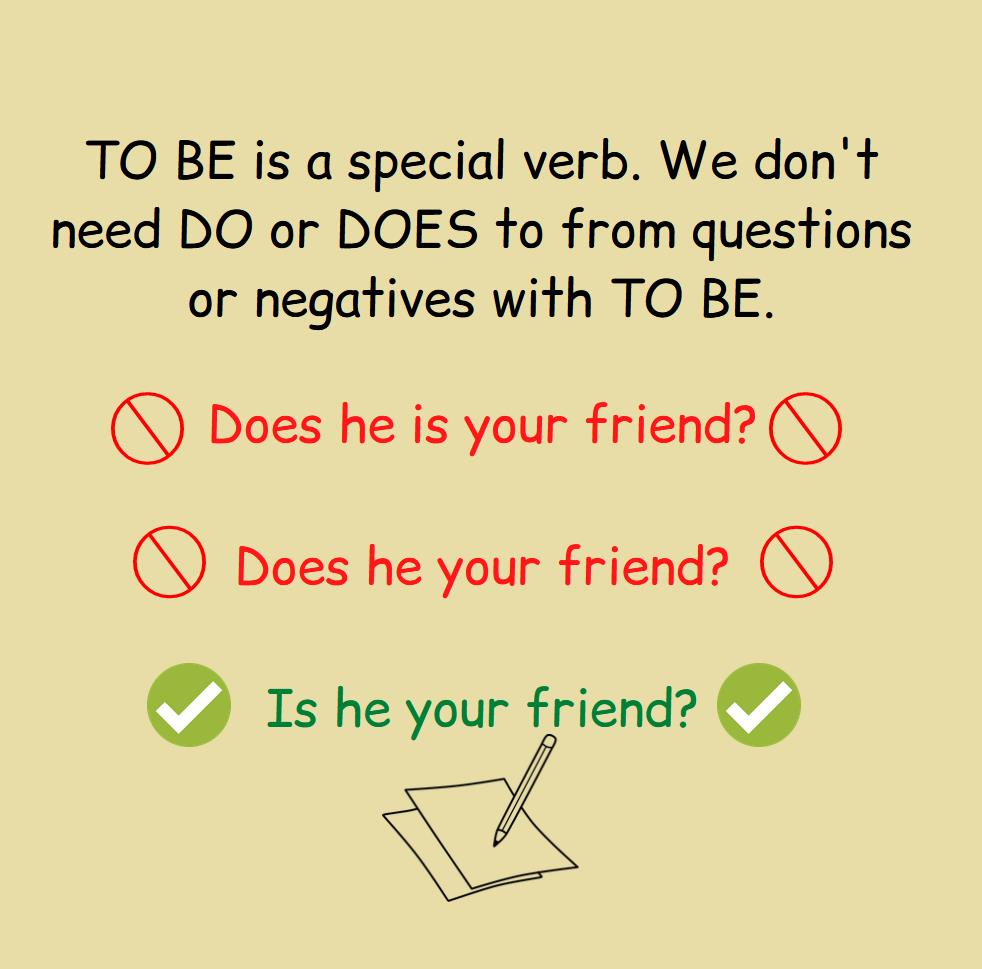Was и were являются формами прошедшего времени глагола to be.
Употребление was
- С местоимениями 1-го лица ед. числа (I), а также 3-го лица ед. числа (he/she/it)
- С существительными, которые могут быть заменены местоимениями 3-го лица ед. числа
Употребление were
- С местоимениями 1-го лица мн. числа (we), 2-го лица ед. и мн. числа (you), а также 3-го лица мн. числа (they)
- С существительными, которые могут быть заменены местоимениями 1-го лица мн. числа, а также 3-го лица мн. числа
Примеры утвердительных предложений
- I was ill last week – Я болел на прошлой неделе.
- Mary and I were at the concert last night – Мэри и я были на концерте прошлым вечером.
- We tried to contact their office yesterday, but the line was busy – Мы пробовали связаться с их офисом вчера, но линия была занята.
- They were so happy to see me – Они были так счастливы видеть меня.
- The letter was on the table. Did you find it? – Письмо было на столе. Ты нашел его?
- The Smiths were on holiday in Brazil last month – В прошлом месяце Смиты были в отпуске в Бразилии.
Примеры отрицательных предложений
Отрицательные предложения с was/were образуются при помощи добавления отрицательной частицы not, которая следует сразу за глаголом.
- I passed the exam. It was not difficult – Я сдал экзамен. Он не был сложным.
- When I came back home last night, the cat was not there – Когда я вернулся домой прошлым вечером, кота там не было.
- I heard their conversation. She was not right – Я слышал их разговор. Она была не права.
- I liked those candies. They were not too sweet – Мне понравились те конфеты. Они не были слишком сладкими.
- His parents were not doctors, they were teachers – Его родители не были докторами, они были учителями.
- Last time I saw them, they were not married – Последний раз, когда я их видел, они не были женаты.
Примеры вопросительных предложений
В вопросительных предложениях was/were выносятся на место перед подлежащим. Обратите внимание, что употребление вспомогательных глаголов в данном случае не требуется.
Общие вопросы
- Was she your teacher? – Она была твоей учительницей?
- Was that dog stray? – Эта собака была бездомной?
- Were John and Chris at the meeting yesterday? – Джон и Крис были на совещании вчера?
- Were you tired after the journey? – Ты устал с дороги?
Специальные вопросы
- Where were you last Monday? – Где ты был в прошлый понедельник?
- Why was your brother so rude? – Почему твой брат был так груб?
- What time were they at the station? – В какое время они были на станции?
- How old was his sister when he was born? – Сколько лет было его сестре, когда он родился?
Альтернативные вопросы
- Was it apple juice or lemonade? – Это был яблочный сок или лимонад?
- Were they early or late for the meeting? – Они опоздали или пришли раньше на встречу?
Вопросы к подлежащему
Помните, что в вопросах к подлежащему глагол всегда принимает форму для 3-го лица ед. числа, независимо от того, какой ответ предполагается.
- Who was absent? – Кого не было?
- What was in the bag? – Что было в пакете?
Разделительные вопросы
- The tea was cold, wasn’t it? – Чай был холодным, не так ли?
- Children were happy, weren’t they? – Дети были счастливы, не так ли?
Примеры вопросительно-отрицательных предложений
- Wasn’t he a student two years ago? – Разве он не был студентом два года назад?
- Weren’t they your neighbours? – Разве они не были твоими соседями?
The verb to be in Present Simple is very important. We use to be with this tense all the time. Because there are so many things we can say by using the verb to be!
For example, we can describe the age of a person:
This boy is 8 years old.
My grandfather is 77 years old.
I am six, I am two years older than my brother! Because he is only four!

By using to be we can inform about the profession/occupation of a person:
My mom is a teacher.
I am the best student in my school.
John is an airplane pilot.
We can say that someone or something is in someplace.
My mother is at work.
The book is on the bookshelf.
My bike is in the garage.

We can describe the state, behavior, mood, character of someone or something. And even much more!
This person is suspicious.
This ball is rubber.
My car is red.
The verb to be does not mean action. To be means to exist in some place or some state. We use to be in the Present Simple to connect the subject with an adjective or noun or pronoun.
This book is green.
We are friends.
I am a good man.
My mom is in France.
This is my car.

There are so many things we can say using the verb to be in the Present Simple! That is why it is very important to be able to use this verb correctly.
What are Three Forms of To Be in Present Simple?
To be in the Present Simple has three forms:
- am
- is
- are
Which form we use depends on the subject:
- I am
- He is
- She is
- It is
- We are
- They are
- You are
I am a good person.
We are best friends.
She is beautiful.

What are the Formulas for Sentences with To be in Present Simple?
To form a positive, interrogative (question), or negative sentence with the verb to be, we cannot use the same rules that we use for other verbs in the Present Simple.
The verb to be forms positive, question, and negative sentences according to its own special rules without the help of the auxiliary verbs do or does.
Positive Sentenses
To form an affirmative sentence, we put to be after the subject. Then we put an adjective or a noun or a pronoun.
Subject + am / is / are
I am your friend!
The dog is small.
We are the students of this school.

Negative Sentences
To form a negative sentence, we add the negative not after the to be.
Subject + am / is / are + not
I am not a boy! I am a man!
She is not at all what you think. She is very kind.
Question Sentences
To form a question we put the verb to be before the subject:
am / is / are + Subject
Am I a good friend?
Is he a doctor?
Are those boys your classmates?

Special Questions with To Be in Present Simple
A Special or Wh-Question contains an additional word or phrase in order to get additional information in the answer. Those are words and phrases like:
- How
- Why
- Why
- When
- Since when
In order to form a special question with the verb to be in the Present Simple, we use the same formula that we use for General or Yes/No Questions. Only we add a question word or phrase to the beginning of the question:
Question word or phrase + am / is / are + Subject
Why is he your friend when he’s so rude?
Why is this book on the table?
Who is this man?
Where is your car?
Since when you are so kind to me?
How to Answer Questions using to be in Present Simple?
To answer a question with the verb to be in the Present Simple, we can use two types of answers:
- Short answer
- Full answer
Short Answer with To Be
To form a short positive answer, we use the following formula:
Yes + Subject + am / is / are
Are you a writer?
Yes, I am.Is he your friend?
Yes, he is.
To form a short negative answer, we use the same formula only we put No at the beginning of the sentence. We also add the negative not after the verb to be.
No + Subject + am / is / are + not.
Is he your friend?
No, he is not.

Full answer with To Be
In order to form a full positive answer with the verb to be, we turn the question into a general positive sentence in the Present Simple. We put the affirmative word Yes at the beginning of such a sentence.
Yes + Subject + am / is / are + Rest of the sentence
Are you at work right now?
Yes, I’m at work (right now).
To form a full negative answer, we use the negative word No instead of Yes. We add the negative not after to be.
No + Subject + am / is / are not + Rest of the sentence
Are you at work right now?
No, I’m not at work (right now).
What is the sort form of To Be in Present Simple?
In English, it is customary to use the contracted forms of the verb to be. Therefore, we abbreviate the verb to be in the Present Simple as follows:
Positive:
- I am – I’m
- He is – He’s
- She is – She’s
- It is – It’s
- We are – We’re
- They are – They’re
- You are – You’re
Negative:
- I am not – I’m not
- He is not – He isn’t
- She is not – She isn’t
- It is not – It isn’t
- We are not – We aren’t
- They are not – They aren’t
- You are not – You aren’t
I‘m not your friend!
They‘re classmates.
She‘s a waitress.
When using the short form, you should note that some short forms of to be in the Present Simple look exactly the same as the short form of to be in the Past Simple.
For example:
He’s – He is in the Present Simple.
He’s – He was in the Past Simple.
We’re – We are in the Present Simple.
We’re – We were in the Past Simple.
In some situations, this can confuse your interlocutor. The meaning of such a sentence may be misunderstood.
For example, look at the following sentence:
She’s my friend!
It may not be clear from such a sentence what you are trying to say. That she is my friend now? Or she was my friend in the past?
In order not to confuse your interlocutor, you can use the full form of the verb to be. Or you can add context to such a sentence from which it becomes clear that you are talking about the past or about the present.
She’s my friend, we spend all the time together.
She’s my friend, we spent all the time together when we went to school 10 years ago.
Now, after we have added additional context, we can see that in the first sentence we use to be in the Present Simple. In the second example, this is to be in the Past Simple.

Common Mistakes with To Be in Present Simple
In this part, let’s take a look at the most common mistakes you can come across when you use the verb to be in the Present Simple.
1) One of the main mistakes is the use of an incorrect form of the verb to be. It mainly happens due to the fact that the verb to be has three forms in the present simple.
Remember that we use am with the pronoun I. We use is with the pronouns he, she and it. We use are with the pronouns you, we, they.
We are good friends.
This ball is green.
She is a very kind woman.
Also, students often make mistakes when using pronouns such as:
- anybody
- everyone
- no one
- someone
etc.
These pronouns almost always imply one person. Therefore, we use the form of the verb to be is.
Nobody is perfect.
I feel like someone is here.
Everyone in this room is lucky.

Sometimes students make mistakes using the future or past form of the verb to be in the present simple. Let’s see what all forms of the verb to be look like.
Present:
- I am
- He is
- She is
- It is
- We are
- They are
- You are
Future:
- I will be
- He will be
- She will be
- It will be
- We will be
- They will be
- You will be
Past:
- I was
- He was
- She was
- It was
- We were
- They were
- You were

2) Sometimes students make a mistake using auxiliary verbs with the verb to be to form a question or negative sentence in the Present Simple. Remember that to be is a special verb and does not need auxiliary verbs like do or does.
Incorrect: Does he is your friend?
Incorrect: Does he your friend?
Correct: Is he your friend?Incorrect: They don’t are my classmates.
Incorrect: They don’t my classmates.
Correct: They are not my classmates.Incorrect: I don’t tired.
Incorrect: I am don’t tired.
Correct: I am not tired.

3) Another mistake is when students use incorrect forms of the verb to be when answering questions in Present Simple.
In this case, students are mistakenly guided by the form of the verb to be in the question. Although in some cases we have to change this form because in the answer we can use a different pronoun.
Question: Are you tired?
Answer: Yes, I am. (Not Yes I are).
We used are in the question because we used the pronoun you. But in the answer, we used the pronoun I. We cannot use are with the pronoun I. We use am.
Here are some more examples in which you can see the same error:
Question: Am I your friend?
Answer: Yes, you are my friend! (NOT: Yes, you am my friend!)Question: Am I weird to you?
Answer: No, you are not weird to me! (NOT No, you am not weird to me!)

Take seriously learning the verb to be especially in the Present Simple! Since you will be using this verb very often.
Also, be sure to check out Present Simple: All Rules You Need to Know detailed tutorial that talks about all the nuances of the Present Simple you have to know.

4 Order the words to make sentences and questions with was and were. the / at /was / party / Bakhyt/? Was Bakhyt at the party 1 were /my/doctors / grandparents 2 at/yesterday / Mikhail/school/wasn’t 3 May / fourteen / Ist / Roza / on / was 4 late / you / were / school / for /? 5 good /tennis/ they / very / at / weren’t 6 your/school/a student/ at this / sister/ was/?
Светило науки — 3 ответа — 0 раз оказано помощи
1. My grandparents were doctors
2. Mikhail wasn’t at school yesterday
3. Rosa was fourteen on May
4. Were you late for school ?
5. They weren’t very good at tennis
6. Was your sister a student at this school?
На основании Вашего запроса эти примеры могут содержать грубую лексику.
На основании Вашего запроса эти примеры могут содержать разговорную лексику.
предложение словом
предложение со слов
фразу словом
предложение со слова «
I’m sure you know somebody who can’t say anything about any idea, plan, or activity without crutching the sentence with the word but.
Уверен, вы знаете людей, которые не могут говорить об идее, плане или деятельности, не испортив предложение словом «но».
He started a sentence with the word «atomic» or «nuclear» and then randomly chose words from the auto-complete suggestions.
«Я начинал предложение со слов «ядерный» или «атомный» и потом выбирал одно из автоматически предложенных вариантов.
Do not start a sentence with the word «but».
He just started every sentence with the word atomic or nuclear and gave the phone to fill in the rest.
Он просто начинал каждое предложение со слова «атомный» или «ядерный» и давал телефону заполнить остальное.
I made up a sentence with the word that I had just learned.
Starting a sentence with the word «you» almost guarantees a non-productive conversation.
Начинать фразу со слова «ты» — верный путь к непродуктивному разговору.
You don’t need to finish every sentence with the word «sir.»
You should avoid beginning a sentence with the word «also.»
You should avoid beginning a sentence with the word «also.»
It is grammatically incorrect to end a sentence with the word «and,» but I get so upset when I think about Ike.
Грамматически неправильно заканчивать фразу словом «и», но я так расстраиваюсь при мысли об Айке.
Insert a period after C, delete whereas and begin new sentence with the word Domestic.
Mr. de GOUTTES wondered whether it was necessary to introduce the second sentence with the word «Nevertheless».
Mr. Lallah suggested replacing the words «as to» in the third sentence with the word «affirming» rather than «stressing» or «suggesting».
Г-н Лаллах предлагает заменить в третьем предложении выражение «что касается» словом «подтверждая» вместо слов «подчеркивая» или «предполагая».
The United Nations Appeals Tribunal, by its decision of 10 October 2011, decided to adopt an amendment to article 5, paragraph 1, by replacing the word «two» in the second sentence with the word «three».
В своем решении от 10 октября 2011 года Апелляционный трибунал Организации Объединенных Наций постановил принять поправку к пункту 1 статьи 5, заменив во втором предложении слово «две» словом «три».
There are two reasons why a writer would end a sentence with the word «stop» written entirely in
СУЩЕСТВУЕТ две причины, почему писателю может захотеться закончить фразу словом «точка», написанным целиком заглавными буквами (ТОЧКА).
And it’s incredibly more for the control group that did the sentences without money and way less not only for the people who unscrambled the sentence with the word salary but also way less if they saw Monopoly money in the corner.
Большинство из контрольной группы, получившие предложения без упоминания денег, гораздо реже из людей, получивших предложение с упоминанием зарплаты, и даже люди, с деньгами из монополии, реже обращались за помощью.
Ok, Ferrari CEO Louis Camilleri implicitly stated that he does not intend to listen to «that word» in the very same sentence with the word Ferrari.
Во время презентации в прошлом году, генеральный директор Ferrari Луи Кэри Камиллери заявил, что не хочет слышать это слово «в той же фразе, в которой есть Ferrari».
Результатов: 17. Точных совпадений: 17. Затраченное время: 73 мс
Documents
Корпоративные решения
Спряжение
Синонимы
Корректор
Справка и о нас
Индекс слова: 1-300, 301-600, 601-900
Индекс выражения: 1-400, 401-800, 801-1200
Индекс фразы: 1-400, 401-800, 801-1200
Synonym: communicate, express, phrase, put, say, tell, voice. Similar words: in a word, in other words, cord, order, work, record, in order, border. Meaning: [wɜrd /wɜːd] n. 1. a unit of language that native speakers can identify 2. a brief statement 3. new information about specific and timely events 4. the divine word of God; the second person in the Trinity (incarnate in Jesus) 5. a promise 6. a secret word or phrase known only to a restricted group 7. an exchange of views on some topic 8. the sacred writings of the Christian religions 9. a verbal command for action 10. a word is a string of bits stored in computer memory. v. put into words or an expression.
Random good picture Not show
1. The word «Impossible» is not in my dictionary.
2. A kind word is never lost.
3. There is great difference between word and deed.
4. One honest word is better than two oaths.
5. Love rules his kingdom without a word.
6. A word spoken is past recalling.
7. Many a true word is spoken in jest.
8. A word to the wise is enough.
9. The word once spoken can never be realled.
10. To a wise man one word is enough.
11. Believe somebody on his bare word.
12. A word in season is most precious.
13. Every brave man is a man of his word.
14. There is many a true word spoken in jest.
15. A wise man hears one word and understand two.
16. A word spoken is an arrow let fly.
17. A word in time is worth two afterwards.
17. Sentencedict.com try its best to collect and make good sentences.
18. A word spoken cannot be recalled.
19. A word is enough to the wise.
20. Suit the action to the word.
21. A word and a stone let go cannot be recalled.
22. An honest man’s word is as good as his bond.
23. While the word is in your mouth, it is your own; when ’tis once spoken, ’tis another’s.
24. A word is no arrow, but it can pierce the heart.
25. The chinese word for crisis is divided into two characters, one meaning danger and the other meaning opportunity.
26. Half a tale [word] is enough for a wise man.
27. Education commences at the mother’s knee, andevery word spoken within the hearsay of children tends towards the formation of character.
28. Life is a leaf of paper white, thereon each of us may write his word or two.
29. Speak clearly if you speak at all, Carve every word before you let it fall.
30. On the great clock of time there is but one word, «Now».
More similar words: in a word, in other words, cord, order, work, record, in order, border, works, worth, worry, world, at work, can afford, afford to, work off, work at, work up, worthy, work out, at worst, worker, network, workout, in order to, out of order, border on, disorder, be worth, according.



